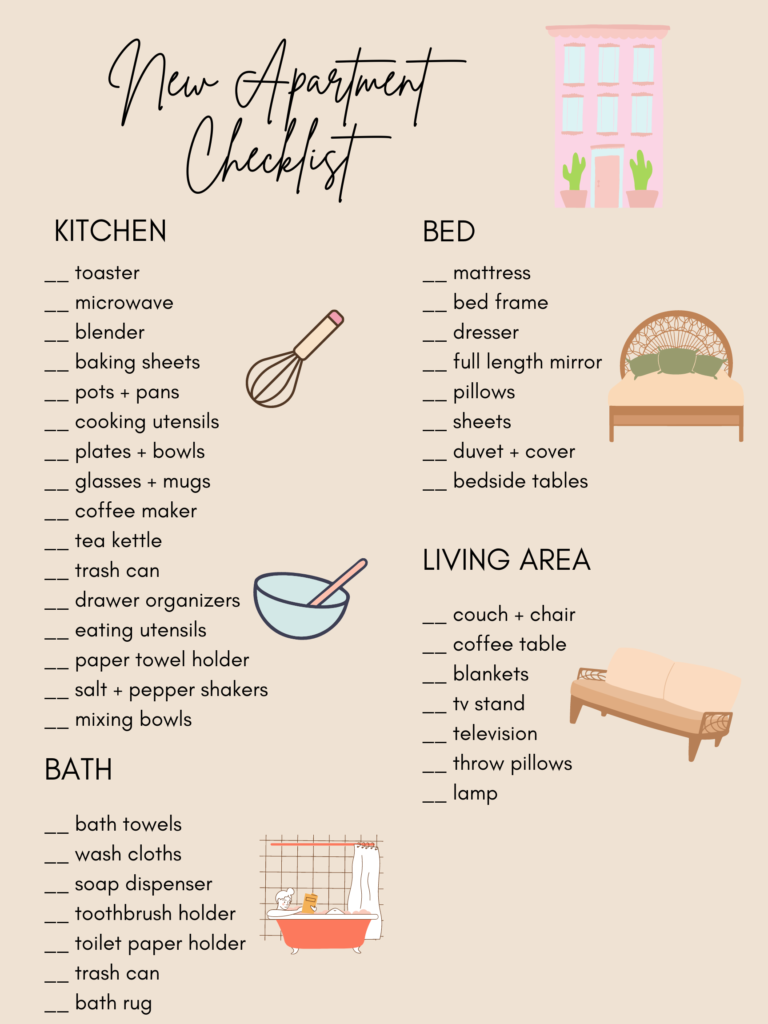Renting an apartment can be both exciting and a bit intimidating, especially when you’re navigating the paperwork needed to secure a place. To help simplify the process, we’ve created a complete checklist of the essential documents you’ll need when applying for an apartment.
Understanding these requirements will make your apartment hunt smoother, faster, and increase your chances of securing your desired rental.
Whether you’re renting for the first time or switching to a new place, this guide has everything you need to know about the documents required.
Let’s dive into the details of what documents you’ll need, why they’re necessary, and a few insider tips to help you make the best impression on your potential landlord.
Quick Summary
Renting an apartment is easier when you’re fully prepared with the necessary documents. Essential documents include proof of identification, income verification, rental history, and credit reports.
Landlords often require background checks, references from previous landlords, and may ask for co-signer documents if your income or credit doesn’t meet the standards.
You’ll also need to complete an application form, which may include a fee to cover background checks. Special cases may require additional documentation, such as pet agreements or student verification.
Being organized and having your paperwork ready can help make the process much smoother, allowing you to focus on choosing a great apartment!
Identification Requirements
Proof of Identity is one of the most basic but crucial requirements. Landlords need to verify your identity to protect both you and themselves.
For this step, you’ll typically need:
- Government-Issued ID: Most landlords require a government-issued photo ID, like a driver’s license or passport. This verifies your identity and age.
- Social Security Number (SSN): While not always necessary at the application stage, your SSN may be required later for credit and background checks.
Having these documents on hand shows the landlord that you’re a serious and prepared applicant.
Proof of Income
To confirm that you’re able to meet the monthly rent, most landlords will want proof of income. This is critical, as it assures them that you have the financial means to cover the rent each month.
Common Forms of Proof of Income:
- Recent Pay Stubs: Usually, landlords ask for your last two or three pay stubs.
- Bank Statements: Some landlords might request a bank statement as further proof of income stability.
- Tax Returns (1040 Form): If you’re self-employed, tax returns or 1099 forms are often used as insurance proof of income.
- Offer Letter: If you’re starting a new job, an offer letter showing your salary details may suffice.
Rental History Documentation
Having a strong rental history reassures the landlord that you’ve been a responsible tenant in the past. A rental history document should include:
- Previous Addresses: List your previous addresses, ideally with rental lease periods for each.
- Previous Landlord Contact Information: Providing contact details of past landlords enables verification of your rental contract history.
- Rental Payment History: If you have documentation that shows a track record of on-time payments, this can be beneficial.
Credit Report and Credit Score
Your credit report gives the landlord a snapshot of your financial responsibility. It includes your credit score, payment history, and any outstanding debts, which help the landlord assess your ability to pay rent reliably.
Tips for Handling Credit Reports:
- Pull a Copy of Your Report: It’s a good idea to get a recent copy of your credit report so you’re prepared.
- Dispute Inaccuracies: If you find any errors, address them before sharing your report with the landlord.
- Explain Any Red Flags: If there are any credit issues, it’s wise to provide a brief explanation upfront.
Background Check Consent
Landlords commonly conduct a background check to ensure there are no past legal issues that might pose a risk. For this, you’ll need to provide consent by signing a release form.
Information Checked in a Background Check:
- Criminal Record: Checks for any past offenses.
- Eviction History: Determines if you’ve been evicted from past rentals.
- Identity Verification: Verifies that your identity matches public records.
References from Previous Landlords
References from past landlords can give your prospective landlord additional peace of mind. They offer insights into what kind of tenant you’ve been, whether you paid rent on time, and if you adhered to the property rules.
Preparing Landlord References:
- Ask Permission: Ensure that you’ve asked previous landlords if they’re willing to be a reference.
- Provide Contact Details: Make it easy by supplying current phone numbers and email addresses.
Employment Verification Letters
An employment verification letter is another document that can strengthen your application, especially if you’re applying for high-rent apartments. This letter serves as proof that you have a stable job.
Employment Verification Letter Essentials:
- Company Letterhead: Official company letterhead adds authenticity.
- Employment Details: Should include your job title, length of employment, and salary.
- Supervisor’s Contact Information: Your landlord may wish to confirm details directly with your employer.
Co-signer Documentation (if applicable)
If your income or credit doesn’t meet the landlord’s requirements, you may need a co-signer. A co-signer essentially takes financial responsibility if you’re unable to pay rent.
Co-signer Requirements:
- Co-signer’s Proof of Income: The co-signer’s financial stability is usually evaluated.
- Credit Report and Score: Many landlords also check the co-signer’s credit.
- Personal Identification: Valid government-issued ID is generally required for verification.
Application Form and Fees
Most landlords or property management companies have a standard application form. This form gathers your personal information, rental history, income details, and more.
Key Parts of the Application:
- Personal Information: Full name, contact details, and emergency contacts.
- Employment and Income: Job details, employer contact information, and proof of income.
- Application Fees: Be ready to pay a non-refundable fee, which typically covers the cost of background and credit checks.
Additional Documentation for Special Cases
Depending on your circumstances, you may need additional documents. For example:
- Pet Agreements: If you have a pet, a landlord might ask for a pet deposit and a pet policy agreement.
- Student Enrollment Verification: If you’re a student, you may need to provide enrollment proof or a guarantor if you lack a steady income.
- Disability Accommodation Documentation: If you require specific accommodations, a letter from a doctor might be required.












